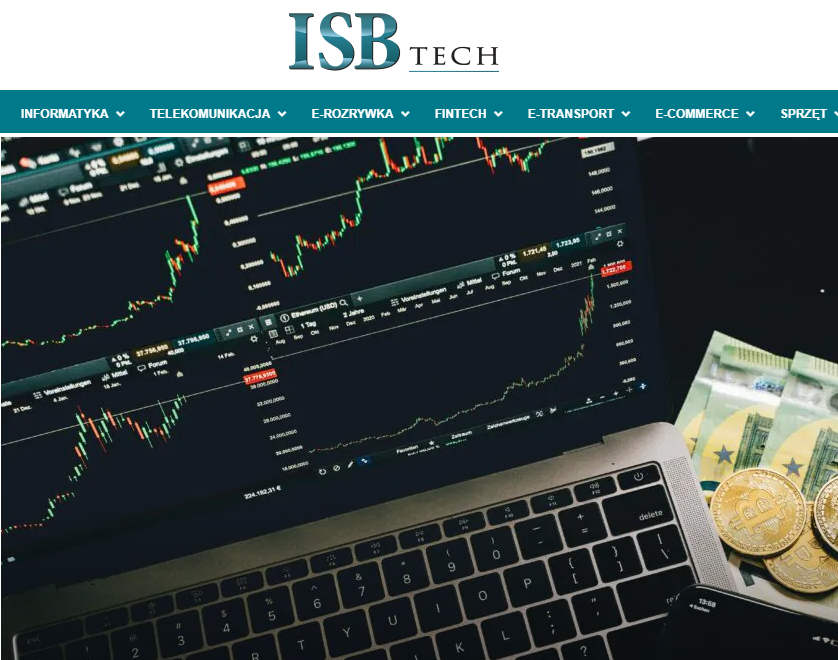In the face of the growing problem of environmental pollution and global climate change, the ecological aspects of transport are becoming increasingly important. Road freight transport, one of the main sources of CO2 emissions, significantly exacerbates this problem. To counteract this, the market – in line with implemented regulations – is shifting a larger portion of freight transport to other modes, such as rail.
Rail transport can reduce greenhouse gas emissions by about one-fifth compared to commonly used trucks, but for this shift to happen more quickly, it needs the expansion of modern infrastructure and innovations to streamline its operations. One of the companies optimizing operations and supporting the development of the rail cargo sector is Polish firm SP Tech Solutions, which provides a range of tools addressing the industry's biggest challenges.
The days when rail transport was associated with massive coal-powered locomotives spewing black smoke are long gone, now only a nostalgic reminder of the industrial era present in archival films and photos. Today, rail is becoming one of the greatest allies in the fight for climate protection and reducing environmental pollution, being several times more eco-friendly than the dominant trucks.
The expansion of rail infrastructure, the increase in innovations optimizing this market, and legal regulations aimed at reducing greenhouse gas emissions from transport are rapidly accelerating this shift. Although currently, road transport accounts for 78% of land freight in Europe, with rail at 17%, according to the European Green Deal, emissions from transport must be reduced by 90%, which should result in moving at least 30% of freight over 300 km from roads to other modes of transport (rail or water) by 2030, and this percentage should rise to 50% by 2050.
Transport and the Environment
Freight transport is undoubtedly a crucial element of the global economy, affecting most industries in the modern world. At the same time, it is responsible for about 25% of total greenhouse gas emissions in the European Union, with just over 70% coming from road transport alone. In comparison, rail transport accounts for 0.4%, making it several times more efficient in reducing CO2 emissions.
"Considering the better load-to-operational power ratio and a high degree of electrification, rail transport is estimated to emit about one-fifth less greenhouse gases per ton-kilometer compared to road transport. With the development of modern infrastructure and innovations optimizing this sector, we expect this result to improve significantly" – notes Piotr Sikorski, CEO of SP Tech Solutions.
Innovations Supporting Rail Development
An important element in reducing emissions in freight transport is the development of the rail sector and its associated infrastructure and logistics processes. This market has long struggled with shrinking human capital, resulting in increasing staff shortages and inefficient time management.
Many entities involved in rail freight transport face challenges related to the need to transport traction teams, which is often solved by simply using taxis. Road carriers in Europe alone cover hundreds of millions of kilometers annually to transport train drivers to the starting point of their trips. As one can easily guess, this not only generates huge costs but also additional greenhouse gas emissions.
"Recognizing the challenges faced by the rail sector and the need for its development and optimization, we created the Raily ecosystem of tools, including the Raily Taxi tool. It optimizes the road transport of railway staff by properly linking routes and eliminating empty runs, significantly contributing to cost optimization and reducing unnecessary CO2 emissions" – comments Piotr Sikorski, CEO of SP Tech Solutions.
Over 30% of rail freight companies in Poland already use the Raily Taxi tool, and this number is steadily growing. Additionally, SP Tech Solutions plans to increase its presence in the German market in the coming months, which is one of the largest transport markets in Europe. Currently, as in Poland, road transport still dominates there, accounting for 72% of freight transport, while rail carries just under 19%.
"The rail market is currently undergoing a complex process of change, taking place on many levels. We have noticed that the solutions used in RAILY Taxi can also be helpful in other areas of rail operations. The RAILY Cargo tool, based on neural networks, which we are currently developing and implementing, simplifies and automates complex business processes, thereby aiding in forecasting, management, and increasing the efficiency of companies involved in rail freight transport" – adds Michał Pawłowski, co-founder of SP Tech Solutions.
There is no doubt that the freight transport market must shift toward more eco-friendly solutions. As rail continues to develop, its share will steadily increase, but to accelerate this change, the market definitely needs not only infrastructure expansion but also innovative solutions like those introduced by SP Tech Solutions.
Read more on ESG Trends


.png)


